The three main passport checks you should make before your next trip

A good book, sun cream, shorts. Whether you travel light or take half your belongings, packing for a holiday can be something of a stress test. Once a passport is in your bag, however, you should be off on your trip.
But be warned: even the most experienced of travellers can be caught out by their dark-blue book. In fact, there are a whole range of issues that might delay boarding (or might delay you getting home at all).
Expiration date danger
The date of expiry, one might assume, indicates the final day one can travel with a passport. Not so. In many countries, like Canada, Egypt, Kenya, Thailand and Vietnam, there needs to be at least six months of validity left on the passport before departure. All countries in the Schengen agreement – including France, Spain and Italy – require three months validity after leaving. It catches out countless passengers a year and, while it is listed on Foreign Office’s individual country advice pages, remains little-known.
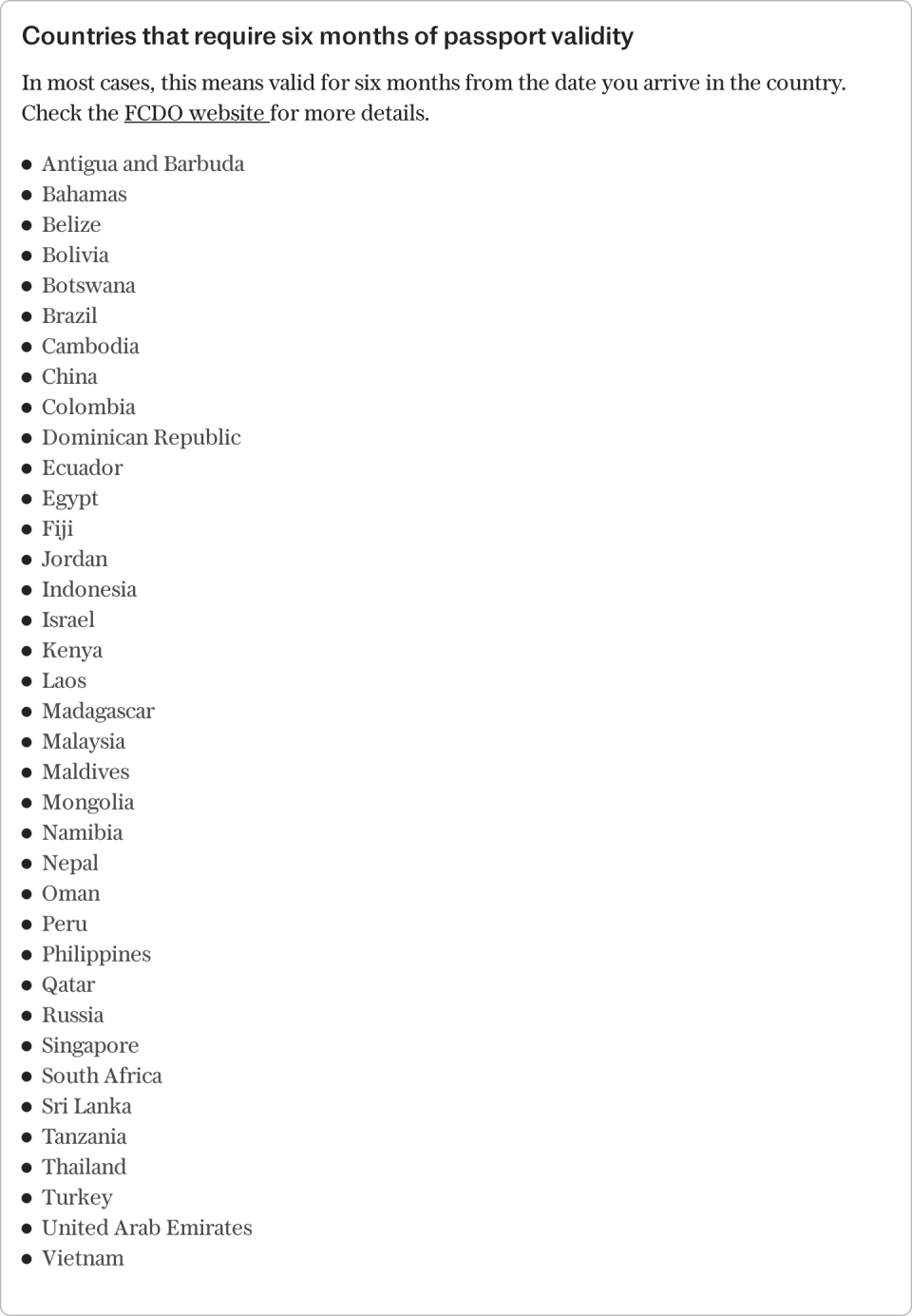
Yet there is an even more complicated date rule. A new passport, for an adult, is typically valid for 10 years. However, if the passport is renewed with months remaining on the old passport, these are added on – meaning some people have passports valid for over 10 years. Countries in the Schengen area explicitly use the date the passport was first issued as the ‘starting’ point, and so passports might be classed as expired. Put simply: if your passport was issued on November 1 2013, you cannot enter the EU post-November 2 2023, regardless of the expiry date on the document itself.
Rhys Jones, a manager at aviation website Head for Points, believes that holiday companies have a responsibility to remind passengers of these rules. “I think providers have a big opportunity to make life easier for a lot of people,” he says, “especially as people continue to go on their first trips after the pandemic. These people might find themselves getting caught out.”
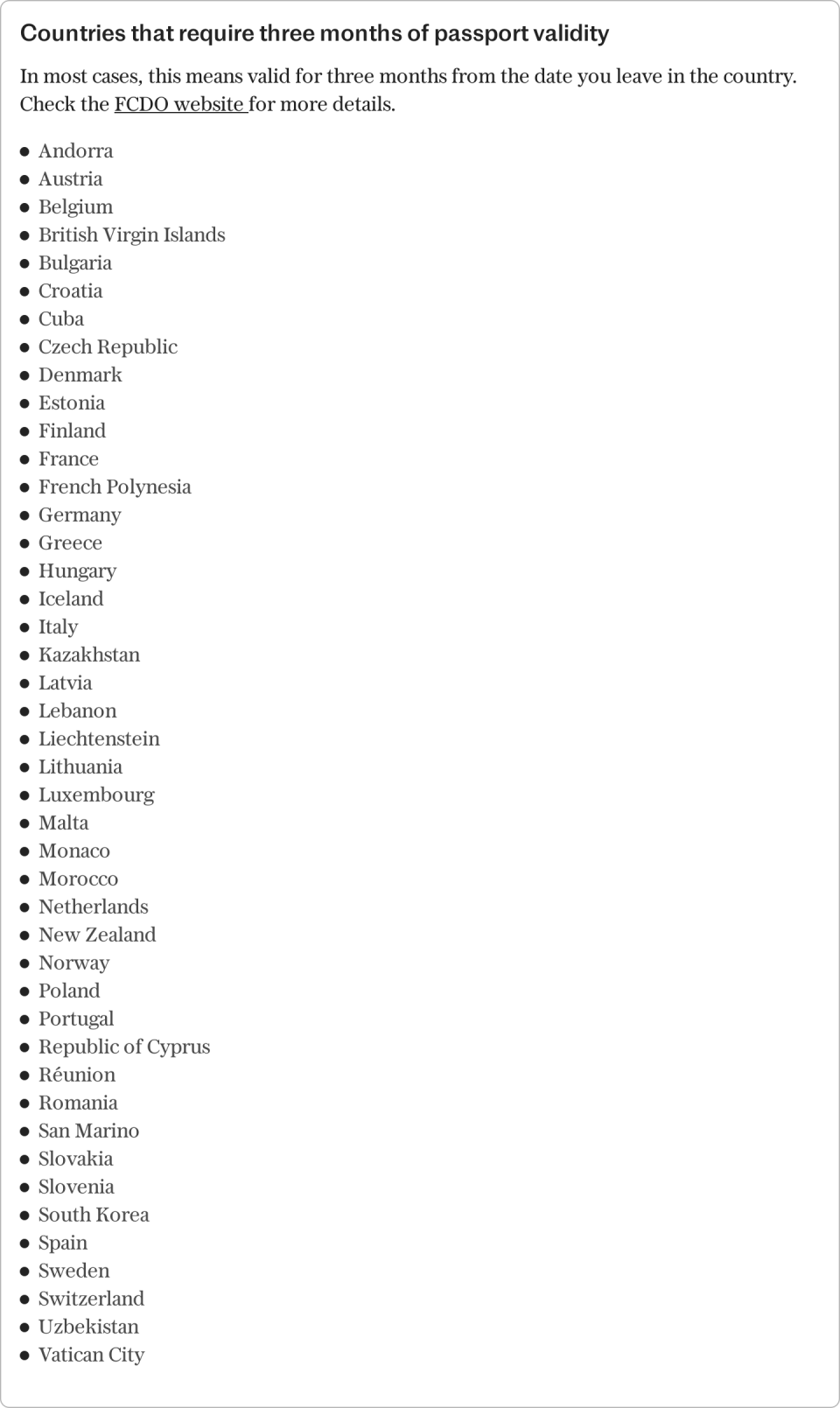
Damaged documents
In our well-travelled world, it’s relatively easy to end up with a less-than-pristine passport. Bashed edges might be excused by the more liberal of border guards, but ripped pages, or scuffed sides, could be enough to impact travel. In fact, a Telegraph Travel reader found themselves unable to go on an £8,000 holiday due to a tear in their passport – despite the fact that it was caused, they said, by BA’s self check-in scanners.
According to the Passport Office, the document must be replaced if “it has more than reasonable wear and tear because you may not be allowed to travel with it.” Examples of “damage” include ink spillages, missing or detached pages, or discolouration.
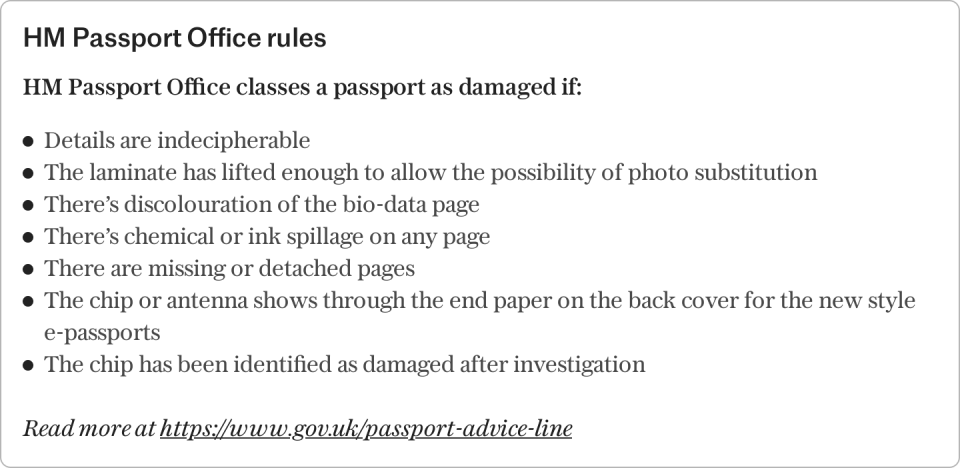
Troublesome stamps
Then there are the stamps. Once the pride of the well-travelled holidaymaker, they were then relegated to something only needed in far-flung destinations. Then Brexit came along, and stamps returned, common for both EU countries and those across the world. While the aloof border guard might not seem too interested in your previous travels, they can have a profound impact on the places you can gain entry to.
In fact, having certain stamps in one’s passport can inadvertently invoke the wrath of international diplomatic issues. When President Trump left office, he placed restrictions on travellers who have been to Cuba by adding the island to a list of ‘State Sponsors of Terrorism’ alongside North Korea, Iran and Syria. It means that those who have been to Cuba since the decision can no longer officially travel to the US under the Esta visa-waiver scheme. Instead, they must apply for a B-2 visa in order to visit the States, a much more lengthy – and expensive – process.
Rhys Jones notes that issues can appear regardless of a traveller’s best intentions. “I was in Malaysia recently,” he says. “Somehow, the border guard had written the wrong date on my entry stamp, which caused a huge issue when I was trying to leave the country.” Eventually, immigration officials managed to rectify the problem, but it has made him more vigilant. “It’s easy to be caught out even when it’s not your fault,” he says.
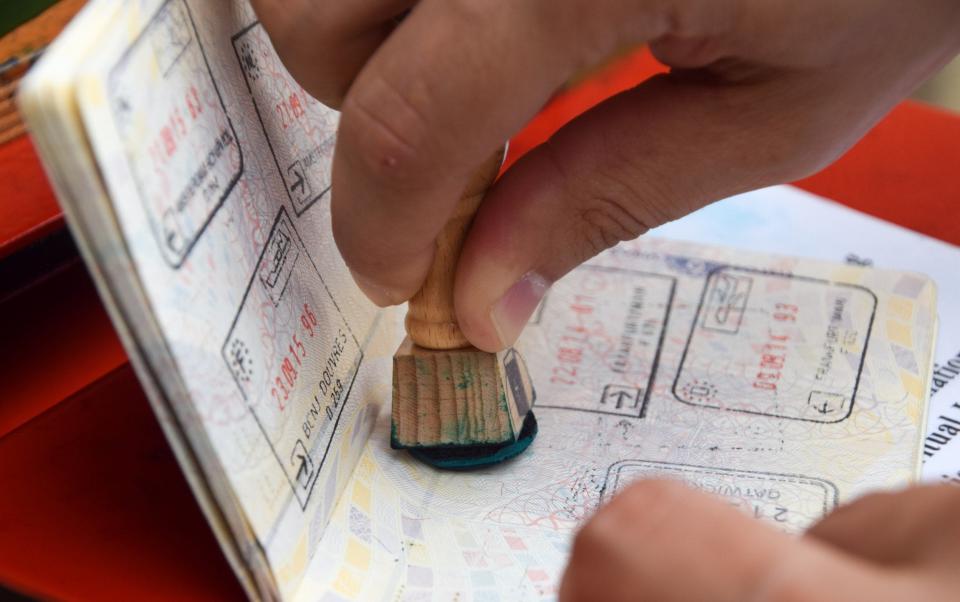
Stamps are not just a matter of border control, however. The momentary glee that comes from getting a novelty stamp – like those from Llanfairpwllgwyngyllgogerychwyrndrobwyll, or Machu Picchu – can cause headaches at the border. In 2020, a tourist with the latter was denied boarding on a plane to Thailand, as she was told it invalidated her passport. It’s a cautionary tale, and one to remember before getting a memento from the gift shop.
The proliferation of stamps also means that it is easy for frequent travellers to run out of space. Entry and exit marks for every European nation has been a striking change for the traveller. And while the introduction of electronic gates (and possibly biometric passports) are likely to remove the worry in the future, travellers who currently cross borders regularly could quite easily run out of pages. That’s a problem in itself, as the cost of a new adult passport starts at £82.50, and those with extra pages cost even more. But some countries, like South Africa, require tourists who are entering with visas to have two blank pages in them, meaning a replacement might be needed long before the space is filled.
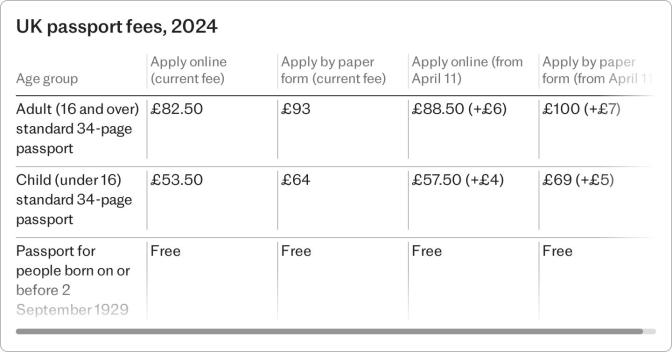
Whether or not this information is flagged by a holiday provider it’s vital you give your passport one last glance before stuffing it into your cabin bag. Passport Office queues fluctuate, although currently, the post-pandemic pressure appears to have lessened somewhat – it’s currently takes around three weeks. Regardless, to avoid a frantic dash for a renewal, make sure to check the date, stamps and pages long before a trip.


